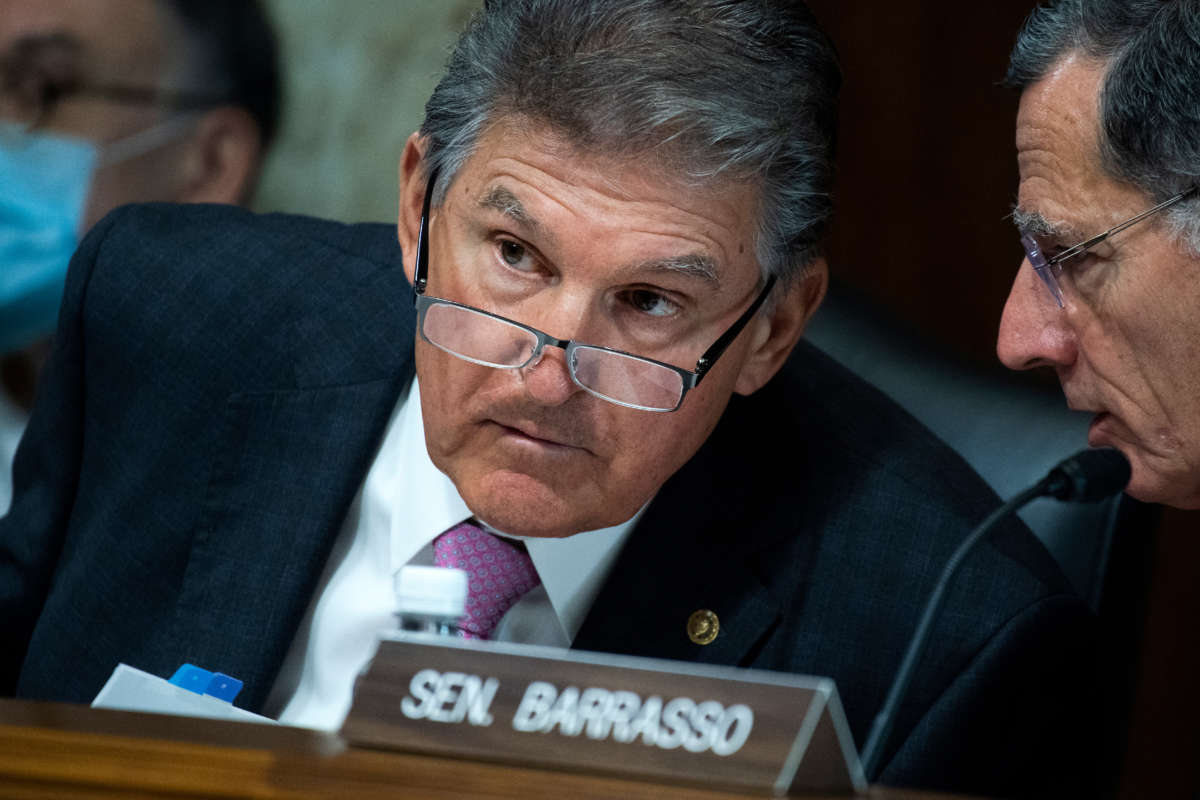Senate Republicans filibustered a voting rights bill that was meant to be a compromised version of previous voting rights legislation proposed by Democrats — and which Sen. Joe Manchin, a conservative Democrat from West Virginia, has said would get at least some GOP support.
All 50 Republicans in the Senate voted to filibuster the bill, effectively ending its prospects of being passed in the “upper chamber” of Congress. In order to get the bill past a Senate filibuster, at least 10 Republican votes are required.
The bill sought to address the slew of anti-voting rights legislation being passed in Republican-controlled states across the country. Many GOP state lawmakers have been proposing restrictive legislation to address false claims that election fraud affected last year’s presidential race, a lie frequently purported by former President Donald Trump and his allies, in spite of evidence that proves otherwise.
“Across the country, the big lie — the big lie — has spread like a cancer,” Senate Majority Leader Chuck Schumer (D-New York) said before the vote on Wednesday. “The Freedom to Vote Act would provide long overdue remedies for all these concerns.”
The filibuster has blocked a number of bills that were part of President Joe Biden’s agenda this year, and critics have questioned how Manchin can continue to put his support in the archaic rule. If filibuster rules remain intact without changes of any kind, it’s unlikely that a bill protecting voting rights will be passed by this session of Congress.
Manchin has previously voiced opposition to the For the People Act, a more expansive voting rights bill which went beyond many of the proposals in the bill voted down on Wednesday. Manchin justified this by saying that promoting a compromise bill would attract bipartisan support.
“Can someone please ask @Sen_JoeManchin what happened to 10 Republicans he promised would support Freedom to Vote Act & how he plans to pass his voting rights bill without changing filibuster rules?” investigative journalist Ari Berman tweeted after the Senate vote blocking the legislation.
“Reminder: Manchin had all of September to try and bring Republicans along on this bill,” said Leah Greenberg, co-executive director of the progressive advocacy group Indivisible. “He couldn’t get a single one. That’s because the filibuster doesn’t encourage compromise – it encourages obstruction. And it has to go.”
Polling shows that a majority of voters support changing filibuster procedures if it means a voting rights bill will be passed. A Vox/Data for Progress poll from March, for instance, found that 52 percent of respondents supported changing filibuster rules to pass the For the People Act, while only 37 percent said they opposed doing so.
But Manchin is unwavering in his opposition to changing the filibuster; he has said he would “never” agree to eliminate the 60-vote threshold that is currently in place.
Earlier this year, Manchin discussed the topic of the filibuster with reporters. As Senators Bernie Sanders (I-Vermont) and Elizabeth Warren (D-Massachusetts) stressed the need to end the Senate rule, Manchin yelled at reporters that he would never agree to the change, shouting, “Jesus Christ! What don’t you understand about never?”
3 Days Left: All gifts to Truthout now matched!
From now until the end of the year, all donations to Truthout will be matched dollar for dollar up to $38,000! Thanks to a generous supporter, your one-time gift today will be matched immediately. As well, your monthly donation will be matched for the whole first year, doubling your impact.
We have just 3 days left to raise $38,000 and receive the full match.
This matching gift comes at a critical time. As Trump attempts to silence dissenting voices and oppositional nonprofits, reader support is our best defense against the right-wing agenda.
Help Truthout confront Trump’s fascism in 2026, and have your donation matched now!
